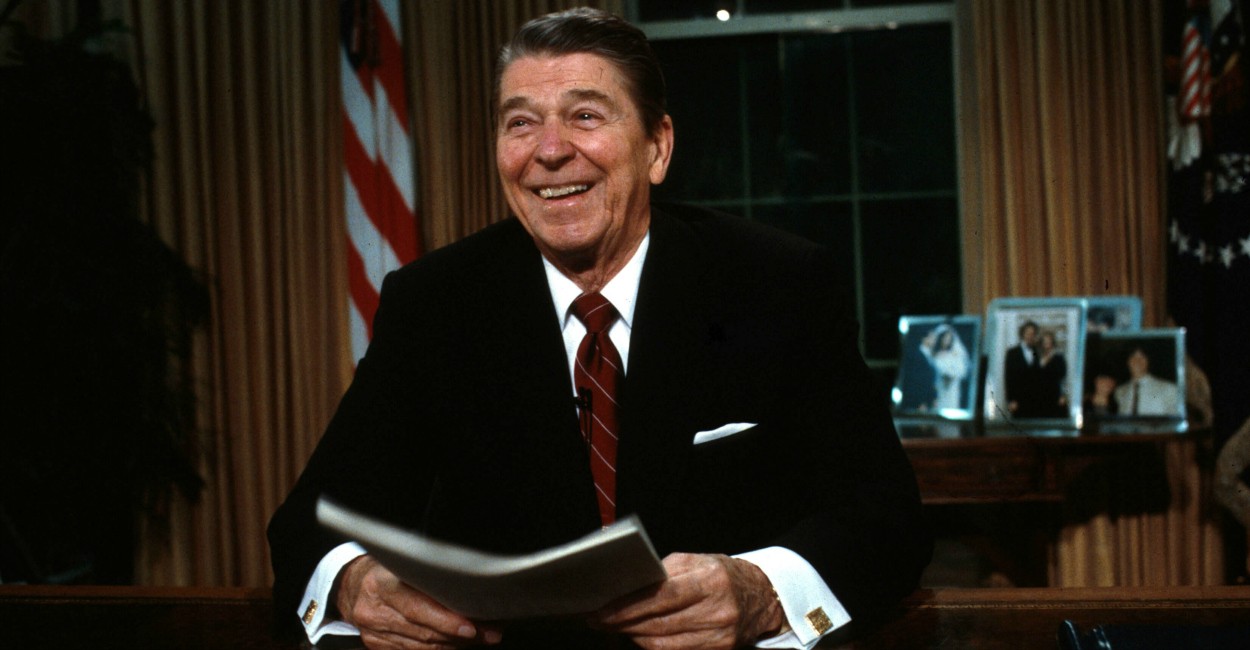 Presidential historian H. W. Brands’ new biography of Ronald Reagan and his conclusion that modern American politics is best seen as “The Age of Reagan” has aroused liberals to circulate once again the hoariest myths about the man and his presidency, including the malicious charge that Reagan was deliberately indifferent to the lot of African-Americans and other minorities.
Presidential historian H. W. Brands’ new biography of Ronald Reagan and his conclusion that modern American politics is best seen as “The Age of Reagan” has aroused liberals to circulate once again the hoariest myths about the man and his presidency, including the malicious charge that Reagan was deliberately indifferent to the lot of African-Americans and other minorities.
Liberal Myth No. 1: Reagan’s dangerously belligerent foreign policy had little to do with the disintegration of Soviet Communism. Mikhail Gorbachev was the leader most responsible for bringing the Cold War to a non-nuclear conclusion.
Reality: In the 1970s, as presidential scholar Kiron Skinner has written, Reagan formulated four key ideas about U.S.–Soviet relations and the Cold War. One, discussion of Soviet expansionism around the world had to precede any talk about arms control, not the reverse. Two, America was an “exceptional” nation obligated to match deeds with words in the promotion of freedom around the world. Three, because the Soviet Union was an “abnormal” nation with no popular base of support, it was prepared to foment global crises to maintain its control. Four, the Soviet Union’s inefficient economy and inferior technology “could not survive competition” with America. Once elected president, Reagan began carrying out a multifaceted victory strategy based on these ideas.
Reagan ordered an across-the-board buildup of the defense establishment, including land-based weapons, new ships, and new medium-range missiles. He launched a psychological offensive, declaring that the Soviets’ “evil empire” was headed for “the ash heap of history.” He made SDI (the Strategic Defensive Initiative) the cornerstone of the Reagan Doctrine and would not surrender it, even at the Reykjavik summit. He strongly supported anti-Communist forces in Afghanistan, Nicaragua, Angola, and Cambodia.
He carried his crusade for freedom into the disintegrating Soviet empire. Standing before Berlin’s Brandenburg Gate in 1987, he directly challenged the Kremlin, saying, “Mr. Gorbachev, tear down this wall!” A little more than two years later, the wall came down and Communism in Eastern and Central Europe collapsed. Lech Walesa, Nobel laureate and founder of the Polish trade union Solidarity that confronted the Communist regime, said of President Reagan, “We in Poland … owe him our liberty.”
Democracy triumphed in the Cold War, Reagan wrote in his autobiography, because it was a battle of ideas—“between one system that gave preeminence to the state and another that gave preeminence to the individual and freedom.” The Cold War ended in triumph for the idea of freedom because of Ronald Reagan, not Mikhail Gorbachev, who as late as 1988 quoted the Communist Manifesto when asked his position on private property.
Liberal Myth No. 2: The ’80s were a decade of greed that benefited only the wealthy and overlooked the middle class.
Reality: Reagan inherited a dangerously weakened economy. High tax rates had severely limited jobs and investment and brought in less than expected government revenue. President Reagan reversed the process by cutting personal tax rates and government regulations, stabilizing the economy and encouraging entrepreneurs.

